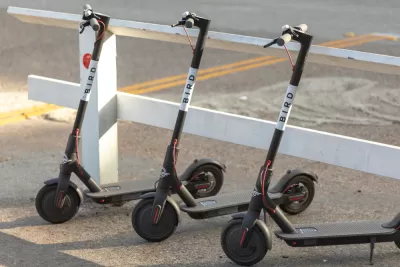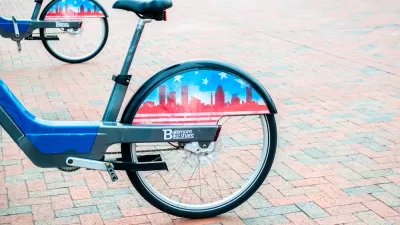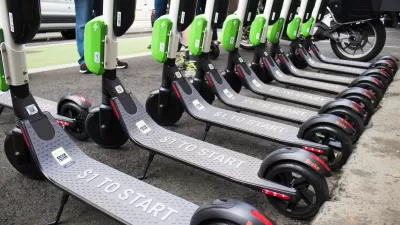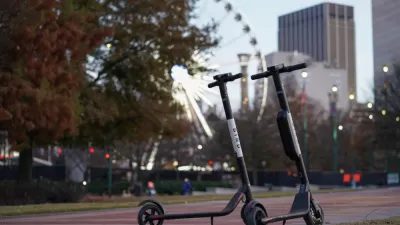It's a temporary experiment, but Santa Monica will not cap the number of scooters operated by private companies in the city.

The city of Santa Monica has rendered a decision about the future of dockless scooters in the beachfront community—and gone a slightly different way than some of the more draconian approaches of cities like San Francisco and Austin.
Melissa Etehad and Tracey Lien report on the proceedings of a City Council meeting earlier this week resulting in a 16-month pilot program "that will allow electric-scooter and electric-bike rental companies to continue operating in the city." The city is presenting the pilot program as "a fact-finding mission to help the city craft longer-term regulations."
"Under Santa Monica’s pilot program, electric-scooter and electric-bike companies will have to apply for a permit and pay an annual fee of $20,000 and a per-device fee of $130," Etehad and Lien explain of the terms of the pilot program.
Companies that receive permits will also have to agree to create interactive safety education for riders, such as sending push notifications to customers’ phones to tell them if they have been riding unsafely. They’ll also have to share real-time data with the city; ensure that their scooters are evenly distributed throughout the city; establish a 24-hour hotline to field complaints; and make sure that improperly parked scooters are promptly moved.
On the important question of whether the city should cap the number of scooters companies are allowed to operate in the city, the article explains that decision was made not to limit the number to avoid the possibility that companies would saturate more dense parts of the city, leaving under-serve neighborhoods without the potential mobility benefit of the scooters.
FULL STORY: Santa Monica tells scooter companies: You can stay — but there are new rules

Maui's Vacation Rental Debate Turns Ugly
Verbal attacks, misinformation campaigns and fistfights plague a high-stakes debate to convert thousands of vacation rentals into long-term housing.

Planetizen Federal Action Tracker
A weekly monitor of how Trump’s orders and actions are impacting planners and planning in America.

San Francisco Suspends Traffic Calming Amidst Record Deaths
Citing “a challenging fiscal landscape,” the city will cease the program on the heels of 42 traffic deaths, including 24 pedestrians.

Defunct Pittsburgh Power Plant to Become Residential Tower
A decommissioned steam heat plant will be redeveloped into almost 100 affordable housing units.

Trump Prompts Restructuring of Transportation Research Board in “Unprecedented Overreach”
The TRB has eliminated more than half of its committees including those focused on climate, equity, and cities.

Amtrak Rolls Out New Orleans to Alabama “Mardi Gras” Train
The new service will operate morning and evening departures between Mobile and New Orleans.
Urban Design for Planners 1: Software Tools
This six-course series explores essential urban design concepts using open source software and equips planners with the tools they need to participate fully in the urban design process.
Planning for Universal Design
Learn the tools for implementing Universal Design in planning regulations.
Heyer Gruel & Associates PA
JM Goldson LLC
Custer County Colorado
City of Camden Redevelopment Agency
City of Astoria
Transportation Research & Education Center (TREC) at Portland State University
Jefferson Parish Government
Camden Redevelopment Agency
City of Claremont





























